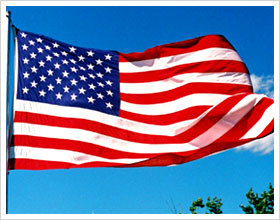US showed restraint as the Berlin Wall crumbled
 Washington - George HW Bush was sitting in the Oval Office 20 years ago when his press secretary came in, advising the president to make a public statement about the rapidly unfolding events in then-divided Berlin.
Washington - George HW Bush was sitting in the Oval Office 20 years ago when his press secretary came in, advising the president to make a public statement about the rapidly unfolding events in then-divided Berlin.
It was November 9, 1989. The Berlin Wall was coming down, the end of Communism was near, and the American people needed to hear what Bush thought of the momentous occasion, Marlin Fitzwater told the president in an account published last year by historian Christopher Maynard.
"I'm not going to dance on the Berlin Wall," Bush replied. "The last thing I want to do is brag about winning the Cold War, or bringing the Wall down."
Bush's disciplined approach from the beginning set the tone for his administration's management of the Berlin Wall's collapse and the eventual end of Communism in Eastern Europe and the reunification of Germany.
Bush believed that any sign of gloating or jubilation would have left the Soviet Union feeling humiliated and could have triggered a crackdown by Moscow, or at least provoked a hardliner backlash against reformists like Soviet premier Mikhail Gorbachev.
As he had done in the Soviet Union since taking power in 1985, Gorbachev urged his Eastern European counterparts in the Warsaw Pact to reform, promising there would be no interference from the Kremlin. Gorbachev's goal was to ensure the long-term survival of Communism, but he had unwittingly put its demise into motion.
At the White House, as East Berliners began pouring through and over the Wall in a wild celebration, Bush was careful to avoid anything that would back Gorbachev into a corner.
At Fitzwater's behest, Bush reluctantly agreed to let reporters into his office. He skillfully dodged questions prodding him for triumphant claims in the battle between Capitalism and Communism. Instead, he called it a "good development."
"Let's remember there were still 400,000 Soviet troops based over there in East Germany," said Stephen Szabo, an expert on trans- Atlantic relations at the German Marshall Fund in Washington. "If it was mishandled, you could have seen some kind of unpredictable or uncontrollable violence break out, and it could have been very dangerous."
Bush's handling of the fall of the Berlin Wall ushered in the "quiet diplomacy" his administration employed to plot out the future of Europe and bring a united Germany into the NATO alliance.
His foreign policy team of James Baker, the secretary of state, and Brent Scowcroft, the national security adviser, began looking at ways to capitalize.
Baker outlined a plan for six-way negotiations between the World War II occupying powers - Britain, France, the Soviet Union and the United States - plus West and East Germany. The plans hit a snag when two key allies, Britain and France, voiced strong opposition to ending the division of Germany.
But Bush was firmly on the side of West German chancellor Helmut Kohl and his agenda to push quickly for rejoining the two German states. He pushed his British and French counterparts, Margaret Thatcher and Francois Mitterrand, to cast aside historical doubts and accept an undivided Germany.
By mid-1990, an agreement had been reached to reunite Germany as a member of NATO - an aspect of the treaty Gorbachev fought against, but had little choice but to accept.
It was critical for Western leaders to move rapidly on reunification, to cement a deal before the hardliners in Moscow could mount a serious challenge, Szabo said. He pointed to the unsuccessful coup against Gorbachev the following year.
"They all felt they had to move very quickly," Szabo said. "This was a case of the diplomacy trying to keep up with the streets of East Berlin." (dpa)